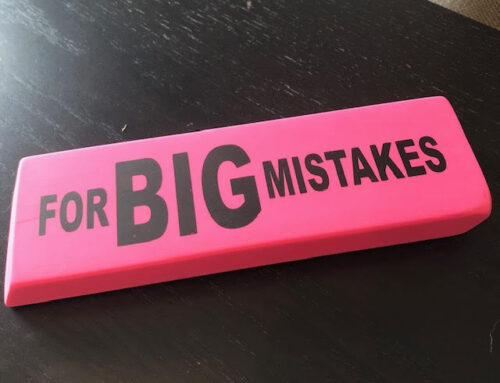“An apology is the superglue of life. It can repair just about anything.”
Lynn Johnston, Canadian cartoonist: For Better or For Worse
Never easy to do, but a heart-felt apology does the world of good so why not end the year with one? 2010 seemed like the Year of the Apology with plenty of good and bad examples being offered up almost weekly. Whether it was Pope Benedict XVI finally apologizing to the Church’s victims of child abuse, Tony Haywood for the environmental chaos created by BP in the Gulf of Mexico or Tiger Woods apologizing to his fans and corporate sponsors, the art of the apology was evident at every turn (or in the case of Tiger, the excruciating need for practise before it looks anything even remotely like art).
Conventional wisdom (especially from lawyers) counselled strongly against apologizing since it could be construed as an admission of guilt. Now we have proof for what we’ve instinctively known all along: that an apology isn’t just good for the soul but can actually help, not hurt, in resolving legal disputes. As reported by Science Daily, according to University of Illinois professor of law and psychology Jennifer Robbennolt, her research showed that apologies can actually play a positive role in settling legal cases ranging from injury cases to wrongful firings. Robbennolt looked at the impact of apologies offered during settlement negotiations and concluded that offering an apology generally reduced financial demands and increased the prospects a reaching a settlement.
When Stephen Harper offered his eloquent apology on behalf of the Canadian government to the victims of the ill-conceived Indian Residential Schools, he said: “The government recognizes that the absence of an apology has been an impediment to healing and reconciliation.” Again conventional wisdom would have us believe that the victim solely benefits from receiving an apology. But done right, the person offering the apology will also be healed by the apology.
The Art of the Apology
Whether you’re wrapping up the year by making a personal apology or apologizing as a spokesperson on behalf of a company, it pays to follow a few simple guidelines:
The sooner the better: As soon as you’re able, get down to the important business of offering an apology. It will be valued more and be more likely to have a positive impact (again for you as much as for them) if you don’t let too much time pass. Having said that, it is truly never ever too late to apologize;
Make it true and from the heart: Stay well away from half apologies such as “I want to apologize (only children don’t know the difference between wanting something to happen and making it happen)” or “I’m sorry it made you feel that way” (does anyone really think that still works?). A good apology is clear and accurate and comes straight from the heart. You know exactly what you did, you regret doing it because you know how it hurt them. Simple.
Make it about Them and Not You: Give them their due and make them feel you understand the situation from their point of view. And then just stop before you start making excuses or explaining why your behaviour was justified under the circumstances. Seriously, just stop.
Say it and Then Don’t Keep Saying it: If you do it right, one good apology should be enough. Then don’t keep bringing it up and don’t keep saying you’re sorry. Going on and on about it will only cheapen the value of the apology. Don’t make sorry a handy reflex.
Actions Speak Louder than Words: As difficult as you might think it is to apologize, the real work starts after the apology is over. The proof of how sorry you truly are will be whether you ever make the same mistake again. So don’t. Learn from your mistakes and move forward.
The best part of wrapping up the year with an apology? It means you can be proud of yourself for doing the right thing. It means you get to start the New Year with a clean slate. A resolution to do better. To be a better person that isn’t afraid to admit when they’ve messed up. To learn and grow and what’s better than that?
Franca provides media interview training for spokespeople and storytelling, presentation and creativity training for individuals or groups. With over 25 years of experience, Franca has worked with hundreds of executives, Olympic athletes, recording artists and television personalities helping them to hone their communication skills.
If you’re interested in learning more about Franca’s professional development training programs please contact us at [email protected].







Leave A Comment